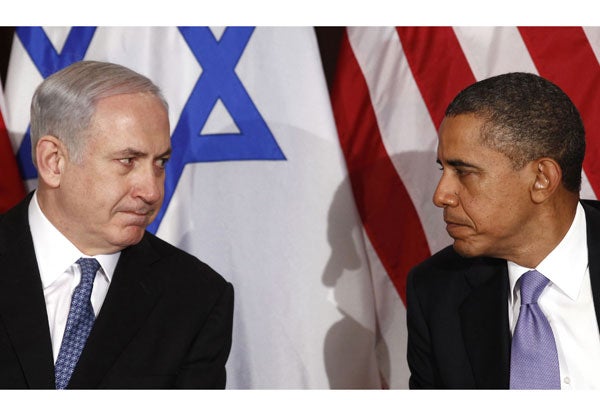President Obama’s foreign policy over the course of his presidency has suffered from severe inconsistency, writes Heritage Foundation distinguished fellow Kim Holmes in The Washington Times:
He’ll draw red lines in Syria and threaten military strikes, then call off the strikes and convene diplomatic conferences. If he’s not killing terrorists with drones, he’s bringing them to New York for civilian trial. He’ll bypass the United Nations Security Council to take military action against Syria, but demand its approval before bombing Libya.
As Jackson Diehl wrote in The Washington Post this week, even if “al-Qaeda’s new base in eastern Syria, Hezbollah’s deployment of tens of thousands of missiles in Lebanon and the crumbling of the U.S.-fostered Iraqi political system pose no particular threat to America,” these are major concerns to U.S. allies. This leaves our allies wondering whether the U.S. will act to defend them in the face of aggression from common foes.
This is no way to lead a country on the international stage and is a result of President Obama’s being, as Holmes puts it, “deeply conflicted about the purposes of American power.” Consistent policy is based on conviction, and without conviction, a leader cannot successfully defend his actions to allies. More importantly, he has no chance of expecting those allies to maintain their trust in the security he is supposed to provide.
Heritage senior fellow James Phillips highlighted how the Saudis have already “signaled that they will seek closer cooperation with other powers to offset the perceived decline in American reliability.” Recently in Rome, Israeli Prime Minister Benjamin Netanyahu informed Secretary of State John Kerry of “his dismay at the Administration’s soft approach toward Iran and warned against a ‘partial deal’ on the nuclear issue.”
America’s allies in Western Europe have lost faith as allegations of U.S. spying on Germany, Spain, and France come out. Germany and Brazil are introducing a resolution at the U.N. condemning U.S. spying on allies in the West.
All this may lead our allies to seek help elsewhere and form new relationships that will be less than preferable for the U.S. If America is to hold on to its leadership role in the international sphere, it needs to be an ally friends can count on.































